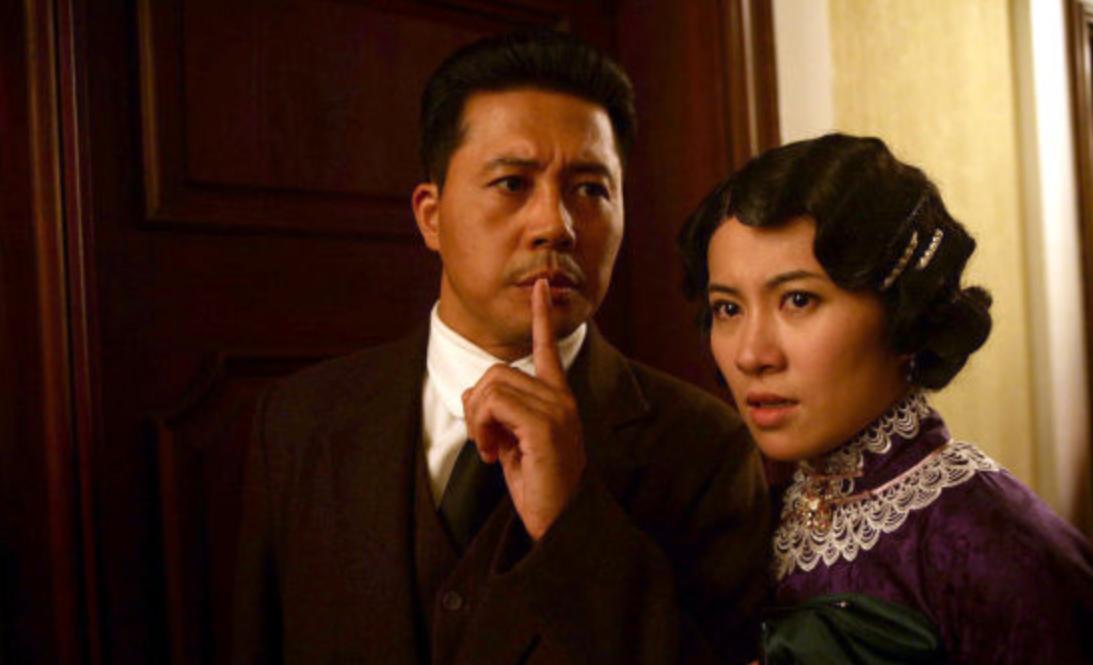Li Lizhuang was one of the leaders of the early women's movement. In 1924, she co-initiated the establishment of the "Feminist Movement Grand Alliance" in Guangdong with Zhong Wanru, Chen Yiyun and others, and Xiang Jingyu was elected as the first president of the Grand League, and Li Lizhuang was elected as the vice president.
However, she had another title— Mrs. Chen Gongbo.
In late July 1921, the "First Congress" of the Party was held in Shanghai, and Chen Gongbo was the last to report as a representative of Guangzhou.
At that time, Li Lizhuang and Chen Gongbo had just been newly married, so Li Lizhuang accompanied Chen Gongbo to attend this meeting.
Chen Gongbo was a native of Guangzhou, the son of a wealthy family, whose father was named Chen Zhimei and was the viceroy of Guangxi.
Li Lizhuang, who had a university education, was elegant and noble, did not speak much, and as soon as he made his appearance on the "first big" of the party, he attracted all the attention of the deputies, which showed the high value of his appearance.

Li Lizhuang and Chen Gongbo on the screen
In the summer of 1920, Chen Gongbo graduated from the Department of Philosophy of Peking University.
During his studies at Peking University, Chen Gongbo and Chairman Mao's lives intersected, and they both joined China's first journalism research group, the "Peking University Journalism Research Association" chaired by Cai Yuanpei, then president of Peking University.
Later, Chen Gongbo had serious wrong words and deeds in splitting the party, and it was difficult to save, and the Central Committee of the Communist Party of China decided to expel him from the party in the spring of 1923.
Chen Gongbo then joined the Kuomintang as secretary of the Kuomintang Central Committee, a position that was still very high. He plunged headlong into wang jingwei's arms, openly played the banner of reorganizing the Kuomintang, and fought against Chiang Kai-shek. Annoyed and angry, Chiang Kai-shek made a decision on the "three majors" of the Kuomintang to permanently expel Chen Gongbo from the Kuomintang.
After Wang Jingwei openly surrendered, Chen Gongbo followed him closely and became the second most traitor in China.
Chen Gongbo
Li Lizhuang did not intervene in Chen Gongbo's political affairs and was very tolerant of her husband's mistress.
Chen Gongbo's mistresses, He Zhuoxian and He Bingxian, lived in luxury and spent money like dirt, and following Chen Gongbo purely because he valued his status and money, and did not help Chen Gongbo in politics and work. Only his personal secretary, Mo Guokang, was not only Chen Gongbo's confidant, but also his political right-hand man. Others knew about her relationship with Chen Gongbo, but they also knew her status, and behind her back, they regarded her as Chen Gongbo's little wife, and still had to call her "Member Mo" (she was a legislator of the Wang puppet government).
Li Shiyu, an agent of our party who broke into the interior of Wang Fei, recalled Li Lizhuang saying: "She had a goose egg face and fair skin... Very steady, does not talk much, and has a good relationship with Miss He, Chen's sister-in-law who has been staying at home for a long time. ”
Li Lizhuang's relationship with Mo Guokang is also very good.
On August 15, 1945, Japan announced its surrender. On the morning of August 25, 1945, Chen Gongbo fled to Japan by plane with Li Lizhuang, Mo Guokang, Lin Baisheng, Chen Junhui, Zhou Longxiu and others.
Li Lizhuang followed her husband to escape the process is very embarrassing, under the arrangement of the Japanese side, the couple took a fire truck to a hotel called "Water Exchange Hall" to stay.
Chen Gongbo, who had been treated coldly in Japan, raised his pistol to commit suicide. Wife Li Lizhuang saw the situation, ran over and grabbed the pistol, the trigger was triggered in the fight, only to hear a "bang", the bullet hit the ceiling.
Chen Gongbo cried out incessantly, and Li Lizhuang hid his pistol. From then on, she kept guarding Chen Gongbo in spite of him, preventing him from looking for short-sightedness again.
On April 12, 1946, Chen Gongbo was sentenced to death by the Jiangsu High Court as a traitor.
During the litigation, Chen Gongbo also wrote a full-text confession of 30,000 words, in order to clear his heart, but he felt that his bad deeds could not escape the punishment of the legal network, and at the end of the confession, he said, "Please ask the court to judge whatever you want, I have decided not to defend again."
Chen Gongbo was tried
Li Lizhuang's request was not accepted by the authorities, and the original judgment was upheld.
In the early morning hours of June 3, 1946, Chiang Kai-shek's attendants sent a telegram to Xie Guansheng, Minister of Justice and Administration of Nanjing, ordering the swift execution, and Chen Gongbo was shot in Suzhou on the same day.
Li Lizhuang and Chen Gongbo had a son named Chen Gan. On the day that Chen Gongbo was about to be executed, Chen Gan and Wang Jingwei's daughter came to Suzhou, and at this time, the execution had just been completed. They did not go to the execution site, but only instructed Chen Gongbo's aide-de-camp to send Chen's body to the Suzhou funeral home for burial. Subsequently, Chen Gongbo was buried in the Shanghai Cemetery, and even the tombstone was not erected.
After her husband Chen Gongbo was brought to justice, Li Lizhuang took his son Chen Gan to live in the United States, and he was able to die well. (Liu Jixing)